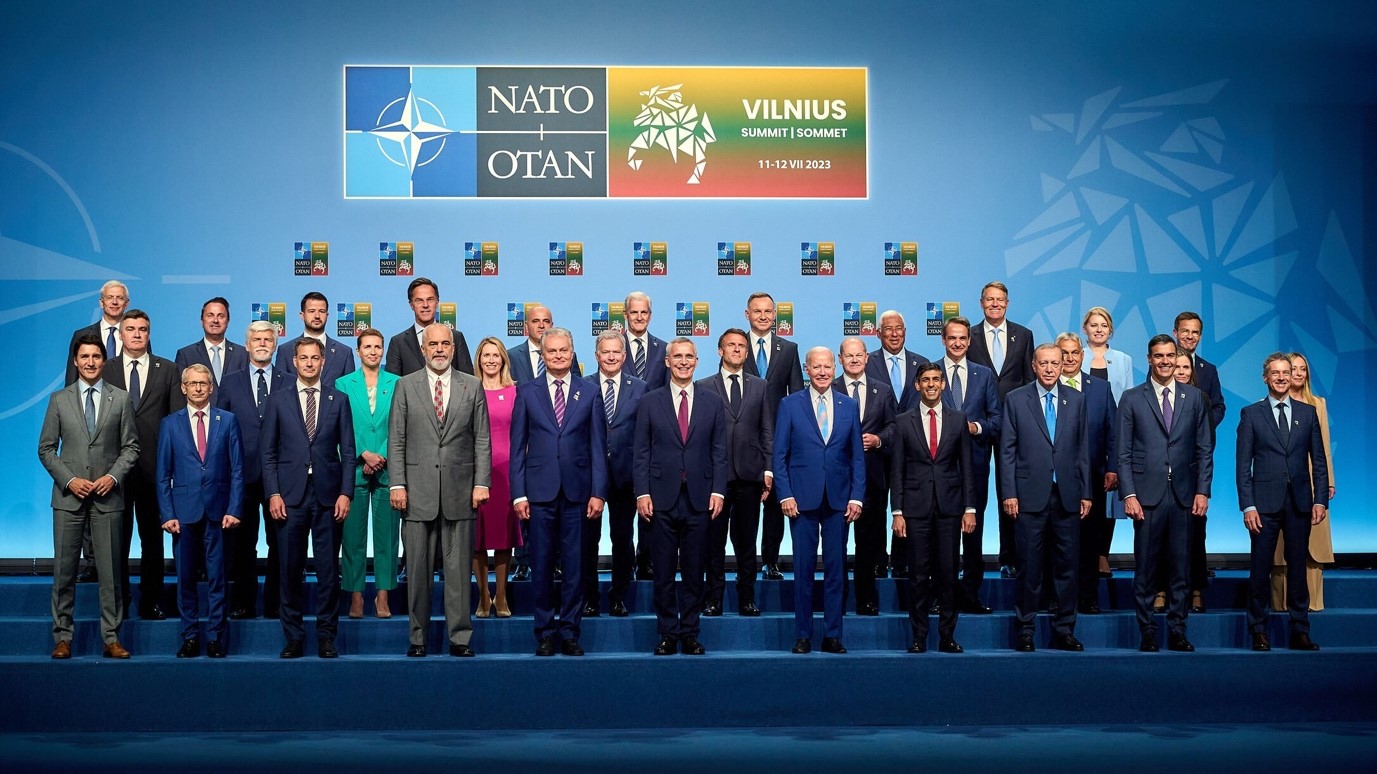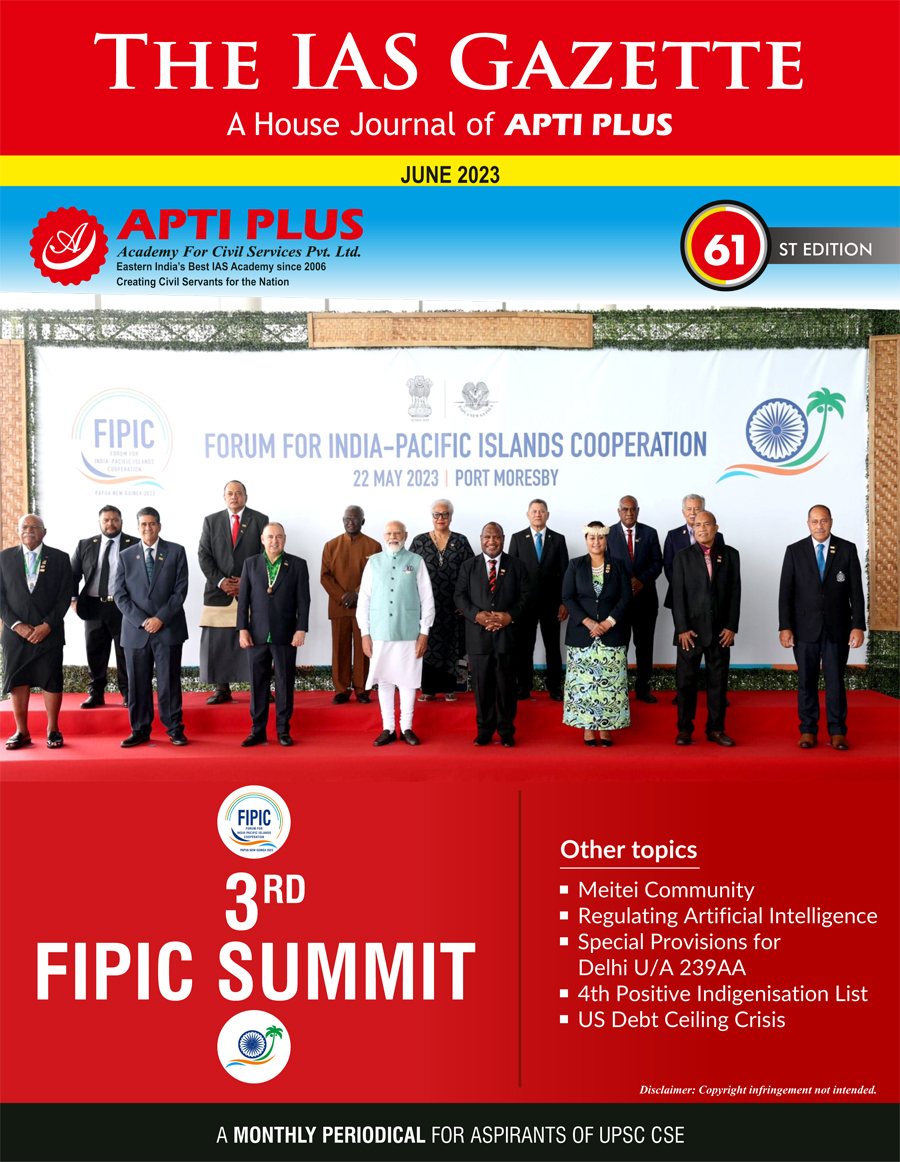Description

Disclaimer: Copyright infringement not intended.
Context
- The NATO Summit in Vilnius has brought renewed significance to the alliance amidst the ongoing war in Eastern Europe. The summit's key focus was on strengthening the alliance and expanding its membership.
Details
NATO Summit Highlights
- Attendance of Ukrainian President: Ukrainian President Volodymyr Zelenskyy's presence at the summit highlighted the possibility of extending NATO membership to Ukraine.
- NATO-Ukraine Council: The launch of the NATO-Ukraine Council aimed to engage Ukraine in crisis consultations and decision-making, indicating potential future inclusion as a full member.
- Unfulfilled Priorities for Ukraine: President Zelenskyy's three priorities - new weapons packages, security guarantees, and an invitation to join NATO - went unfulfilled at the summit.
- Enhanced NATO Defenses: In response to the crisis in Eastern Europe, NATO plans to maintain a force of 300,000 troops with air and naval capabilities and endorsed a Defense Production Action Plan.
- Inclusion of Finland and Sweden: Finland's inclusion and approval of Sweden as NATO members demonstrated the alliance's willingness to invite other European countries to join and deter potential aggression against its members.
- Turkey's Shift in Stance: Turkey's scaling back of opposition to Sweden's inclusion in NATO indicates a desire to mend relations with the U.S. and address economic challenges.
- S. Support for NATO and Ukraine: President Joe Biden extended unwavering support to the alliance and Ukraine, contrasting with former President Donald Trump's approach.
Threat Actors to NATO
- China's Ambitions and Coercive Policies: The summit highlighted threats from China's malicious cyber operations, confrontational rhetoric, and disinformation targeting NATO allies.
- Indo-Pacific Developments: The Indo-Pacific's increasing relevance to Euro-Atlantic security was emphasized, with expanding space for Quad countries and others like New Zealand and South Korea.
- Russia's Undeterred Approach: During the summit, Russia launched a drone attack on Kyiv, demonstrating a defiant stance against NATO's potential expansion.
Analysis
- The NATO Summit in Vilnius underscored the alliance's renewed purpose in the face of Eastern Europe's conflict.
- The inclusion of new members, such as Finland and Sweden, demonstrated NATO's commitment to Article 10 of the Washington Treaty, inviting European countries to join. Turkey's shift in stance reflected a desire to improve relations with the U.S.
- S. President Biden's support for NATO and Ukraine assured the alliance of unwavering backing and showcased a bipartisan consensus on Ukraine domestically.
- The summit's recognition of China's threats and the growing importance of the Indo-Pacific region demonstrated NATO's evolving focus on global security challenges.
- However, Russia's unyielding approach in launching attacks amid the summit highlights the ongoing contestation over Eurasian security, which will continue to shape NATO's future and its role in addressing international conflicts.

NATO: The North Atlantic Treaty Organization
Introduction
- The North Atlantic Treaty Organization (NATO) is a political and military alliance of 30 member countries from North America and Europe.
- It was established in 1949 with the primary objective of ensuring collective defense against potential aggression, primarily from the Soviet Union during the Cold War era.
- Since its inception, NATO has undergone significant transformations and has become a crucial pillar of international security and cooperation.
NATO's Core Principles
- Collective Defense: The cornerstone of NATO is Article 5 of the Washington Treaty, which states that an attack against one member country shall be considered an attack against all members, and each member is committed to come to the defense of the attacked member.
- Political Consultation: NATO provides a platform for member countries to consult and cooperate on defense and security-related issues, fostering a spirit of solidarity and cooperation among nations.
- Transatlantic Bond: NATO strengthens the transatlantic bond between North America and Europe, promoting shared democratic values and interests.
- Crisis Management: NATO engages in crisis management and conflict resolution, participating in peacekeeping operations and providing humanitarian assistance during emergencies.
Analysis of NATO's Significance in Contemporary Times
- Relevance amid Eastern Europe Crisis: The war in Eastern Europe has renewed the importance of NATO as a collective defense alliance. The Russian annexation of Crimea and ongoing conflict in Ukraine underscored the need for NATO's presence and commitment to ensuring the security of its member states.
- Expansion and Inclusion: The Vilnius Summit reflected NATO's efforts to strengthen and expand its alliance. The possibility of extending NATO membership to Ukraine, along with the inclusion of Finland and approval of Sweden as potential members, demonstrates NATO's commitment to deterring aggression and safeguarding stability in the region.
- Addressing Threats from China: The summit acknowledged the emerging challenges and threats posed by China's ambitions, cyber operations, and disinformation campaigns. NATO's recognition of China as a security concern showcases its evolving role in addressing global security issues beyond the Euro-Atlantic region.
- S. Leadership and Support: The change in U.S. administration has brought a more committed stance towards NATO. President Joe Biden's unwavering support for the alliance and Ukraine reaffirms the importance of NATO in trans-Atlantic relations and collective security.
- Future of Eurasian Security: The drone attack on Kyiv during the summit underscores the contestation and complexity of Eurasian security. NATO's potential expansion and actions in response to regional threats will shape the future security dynamics in the Euro-Atlantic region.
Challenges and Concerns Associated with NATO
- Divergent National Interests: One of the major challenges facing NATO is the divergence of national interests among its member countries. Different member states may have varying priorities and concerns, making it challenging to reach a consensus on certain issues.
- Burden-sharing: The burden of defense spending and military contributions within NATO is not evenly distributed among member countries. This has led to tensions and criticisms from some members who feel that certain countries are not contributing their fair share to the alliance.
- NATO-Russia Relations: NATO's expansion towards Eastern Europe has strained relations with Russia, leading to concerns about potential escalations and misunderstandings. Russia perceives NATO's enlargement as a security threat, and this has resulted in heightened tensions in the region.
- Cybersecurity and Hybrid Threats: The rise of cyber warfare and hybrid threats poses a significant challenge to NATO. Non-state actors and state-sponsored hackers can exploit vulnerabilities in member countries' cyber infrastructure, undermining security and stability.
- Global Relevance and Role: NATO faces questions about its global relevance and whether it should expand its focus beyond the Euro-Atlantic region. The emergence of new security challenges, such as those posed by China and other non-traditional actors, requires NATO to adapt its strategies and priorities.
- Political Divisions within NATO: Internal political divisions among member countries can hinder the alliance's ability to respond effectively to crises and challenges. Disagreements on key issues, such as military interventions and policy approaches, can weaken NATO's unity and coherence.
- Public Support and Perception: Public support for NATO varies among member countries, with some populations questioning the alliance's effectiveness and relevance. Ensuring sustained public support is crucial for the alliance's long-term viability.
- Resilience against Disinformation: NATO faces disinformation campaigns from external actors seeking to sow discord and undermine trust among member countries. Building resilience against such campaigns is vital to maintaining solidarity within the alliance.
- Nuclear Policy and Arms Control: NATO's nuclear policy and arms control agreements continue to be points of contention among member states. Balancing the need for deterrence with efforts towards disarmament remains a complex challenge.

Way Forward
To address these challenges and concerns, NATO must:
- Strengthen internal cohesion and ensure that member countries are committed to collective defense and burden-sharing.
- Engage in constructive dialogue with Russia to mitigate misunderstandings and reduce tensions in Eastern Europe.
- Adapt its strategies to address emerging security threats, including cyber warfare and hybrid challenges.
- Enhance public diplomacy efforts to improve public support and understanding of NATO's role and contributions.
- Continue to promote dialogue and cooperation with global partners to address common security challenges.
- Foster political dialogue and consensus-building among member countries to address internal divisions.
- Invest in resilience and capabilities to counter disinformation and cyber threats.
Conclusion
The NATO Summit in Vilnius brought a renewed sense of purpose and expansion to the alliance. By engaging with Ukraine and addressing global security challenges like China's ambitions, NATO seeks to strengthen its position in the international arena. The inclusion of new members and U.S. support further bolsters the alliance's relevance and unity. However, the evolving security dynamics in Eastern Europe and the Indo-Pacific region pose ongoing challenges that will define NATO's future and its ability to ensure global stability.
Must Read Articles:
https://www.iasgyan.in/daily-current-affairs/vilnius
|
PRACTICE QUESTION
Q. The recent NATO summit held in Vilnius showcased various strategic necessities for the alliance, including strengthening and expanding its membership. Analyze the implications of the summit's outcomes on Euro-Atlantic security and the evolving role of NATO in addressing global threats. (250 words)
|
https://epaper.thehindu.com/ccidist-ws/th/th_delhi/issues/44318/OPS/GG0BGNSKR.1.png?cropFromPage=true














